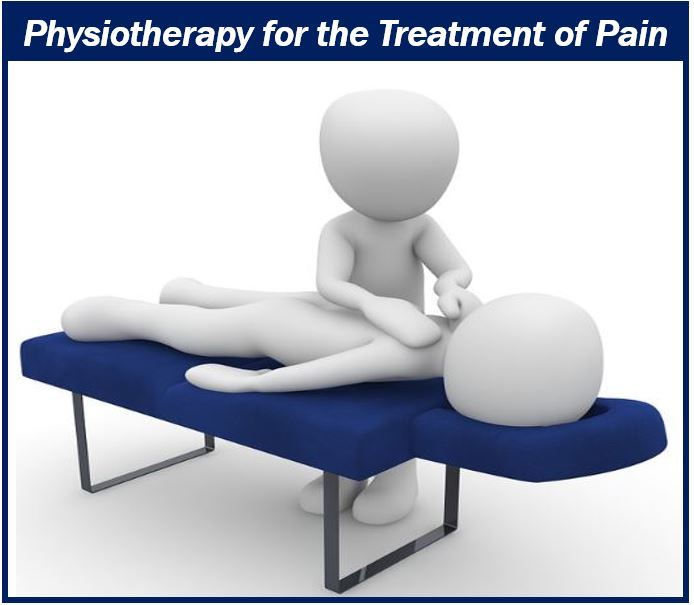 Life in today’s workplace is becoming increasingly stressful for millions of people across the world. Excessive stress, lack of sleep, not enough physical activity, and an unhealthy diet have become common features of modern life for many people. However, these features can eventually lead to physical and mental health problems.
Life in today’s workplace is becoming increasingly stressful for millions of people across the world. Excessive stress, lack of sleep, not enough physical activity, and an unhealthy diet have become common features of modern life for many people. However, these features can eventually lead to physical and mental health problems.
A growing number of mothers are raising their children while working full-time. Over the past few decades, the number of women with health problems has increased significantly.
According to the National Institute of Neurological Disorders and Stroke in the United States, approximately 80% of American adults experience low back pain at some point in their lives. Low back pain is a major reason people miss work.
A large study found that over a quarter of individuals interviewed said they had experienced low back pain during the previous three months. So how is pain treated? It depends on the body part.
What is physiotherapy?
Physiotherapy is effective in restoring movement and function when people are affected by illness, injury, or disability. It is also an extremely effective treatment for chronic pain.
Physiotherapist uses movement, manual therapy, education, and exercise to help their patients. Physiotherapy facilitates recovery and encourages development, which enables employees to stay at work. It also helps them maintain their independence.

We sometimes refer to physiotherapy as Physio or PT. Physiotherapists may work either in a clinic or hospital or on their own. They often form part of a team, working alongside occupational therapists, psychologists, nurses, doctors, and others.
Physiotherapy can treat neck and back pain
Neck pain
In most cases, neck pain only lasts a few days or weeks. However, sometimes it can persist for much longer.
Neck pain is usually caused by an injury, a pinched nerve, or a bad posture. If the neck is in an awkward position while you sleep, you might have neck pain when you wake. up.
A professional physiotherapist will first determine why you have neck pain before recommending the best treatment. Many treatment options are possible, as well as teaching good posture and improving muscle strength.
After a few physiotherapy sessions plus some exercises, you will have to perform at home, most people with neck pain experience significant improvement.
Back pain
Back pain is extremely common, especially among people who have to do heavy lifting at work. Lumbago (lower back pain) is especially common. Pain from lumbago can be felt all the way down from the hips, along the spine, and right up to the neck.
In most cases, back pain goes away within a week or two. However, sometimes the pain may become chronic. Chronic means it lasts a long time, maybe months or even years. Chronic pain contrasts with acute pain, which only lasts for a day or two.
Physiotherapy is extremely effective in treating all types of back pain. Apart from using manual therapy and teaching certain exercises and movements, physiotherapists also give patients advice on correct posture. Lifting and carrying techniques can help prevent future back pain or injury.

More than neck or back pain
Physiotherapy can treat much more than back or neck pain. People with sports injuries, arthritis, or respiratory problems, for example, can benefit significantly.
It is also an integral part of rehabilitation after, for example, a serious accident, surgery, or a complex medical problem. Physiotherapy helps boost circulation, build muscle strength, and restore bodily functions, which helps patients regain their independence.
Here are some common health problems that are treated successfully with physiotherapy:
- Back pain.
- Shoulder impingement.
- Neck pain.
- Headaches.
- RSI (repetitive strain injury).
- Bursitis,
- Several forms of arthritis.
- Strains and sprains.
- Tendonitis.
- Tendon tears.
- Whiplash and other motor vehicle accident injuries.
- Balance problems.
- Rehabilitation after knee or hip replacement, and other surgical procedures.
- Sports injuries.
Physiotherapists can teach you how to overcome challenges in everyday life that were once easy for you. Perhaps today you find it hard to go up the stairs at home, get in and out of your car, or bath. You may also have difficulties getting in and out of bed.
Physiotherapists can treat a wide range of medical conditions.
Interesting Related Article:”How To Heal Faster From Injuries?“

